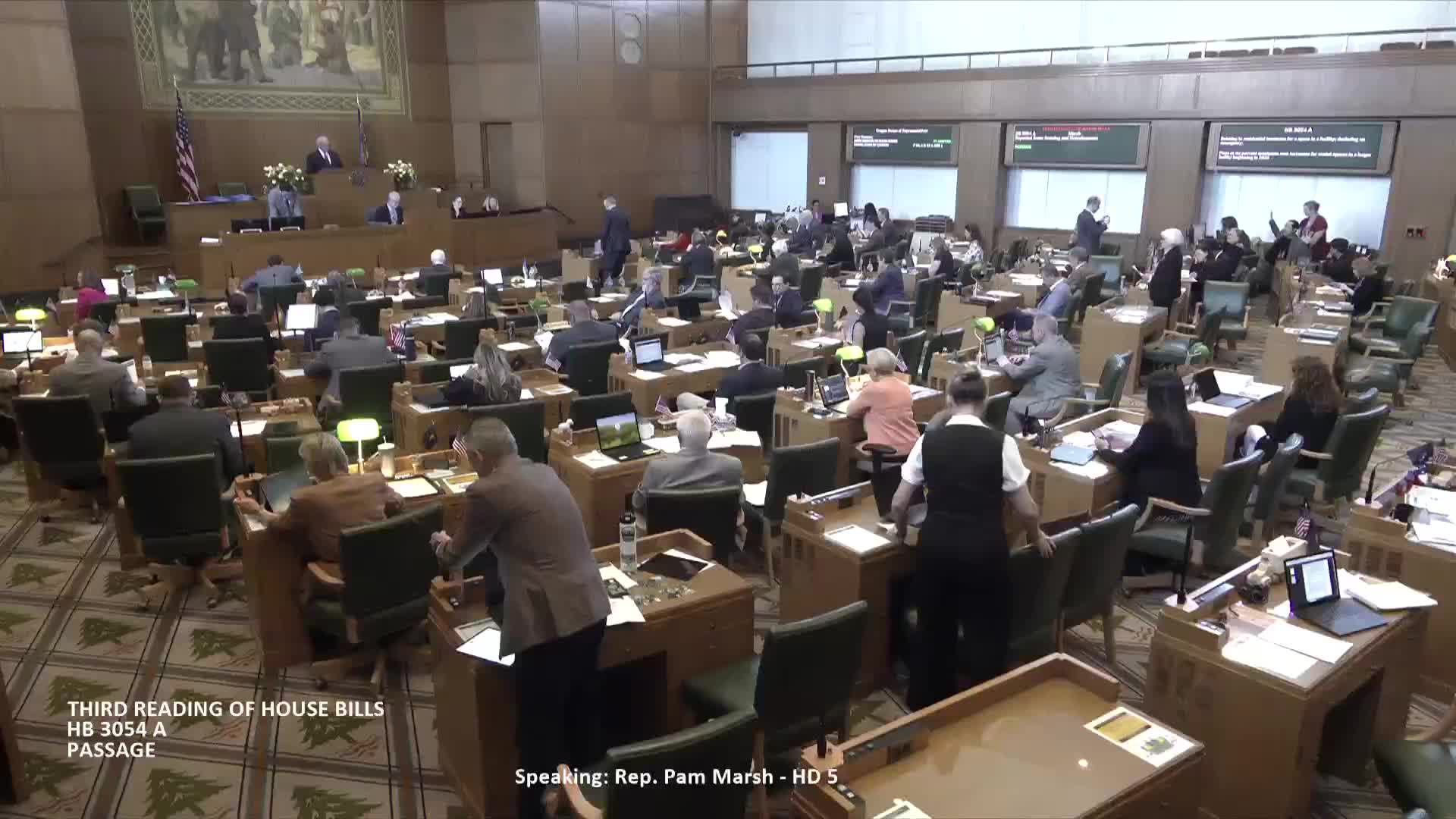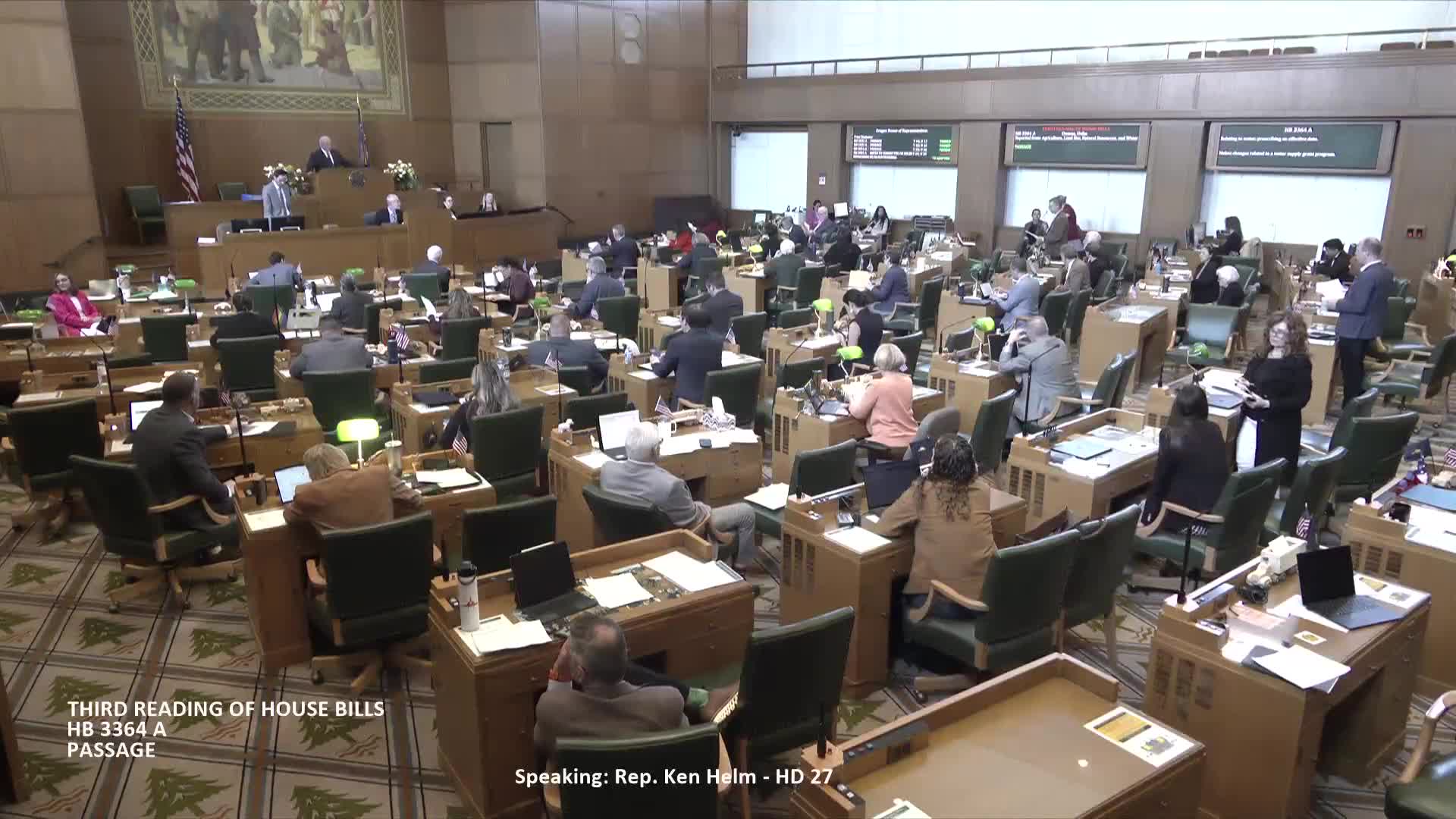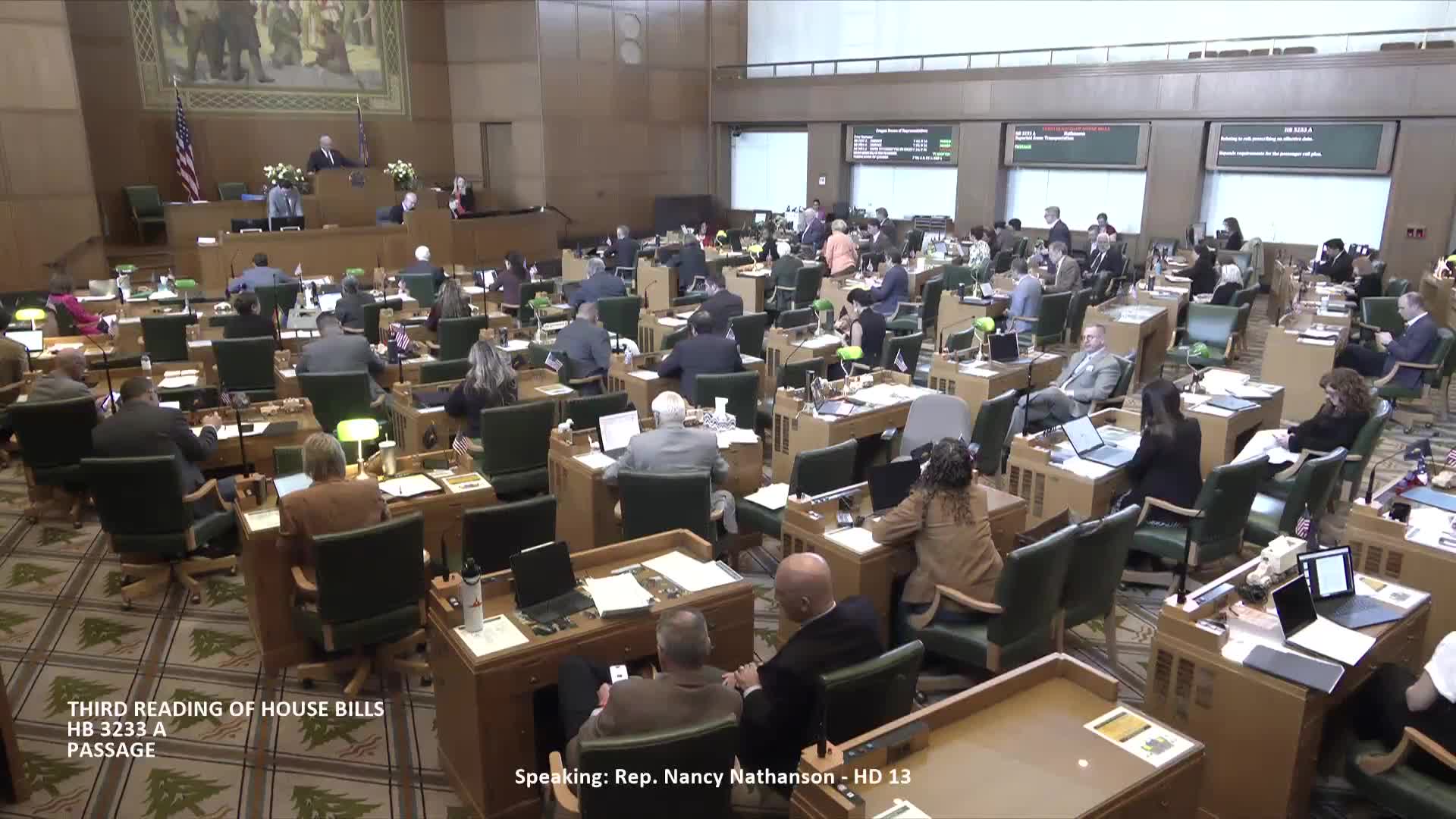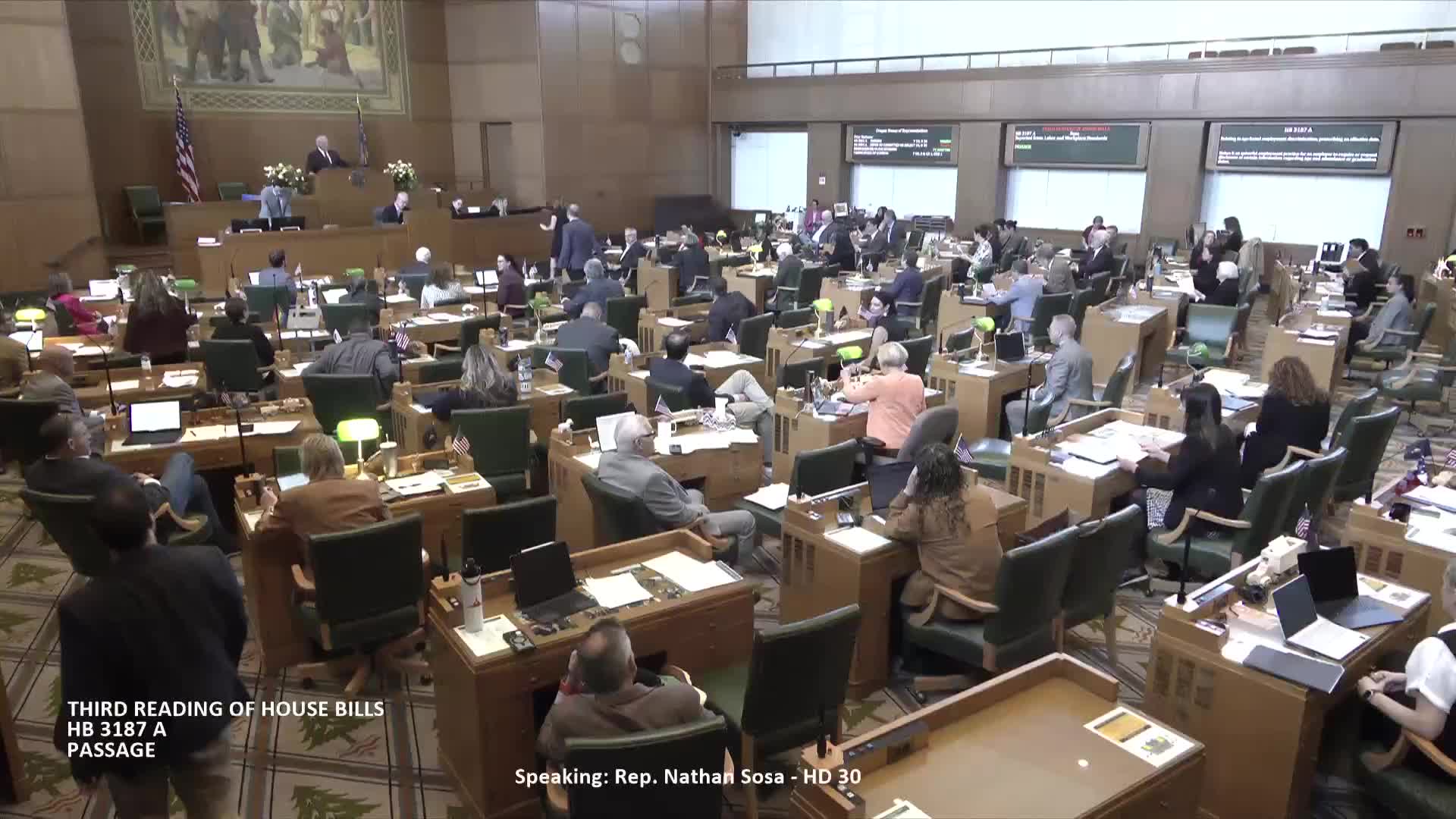Article not found
This article is no longer available. But don't worry—we've gathered other articles that discuss the same topic.

House approves 6% annual cap on site rents for most manufactured-home parks

House updates water project grant program to speed funding and broaden eligible projects

House approves bill directing ODOT to pursue regional rail planning and joint federal grant strategies

